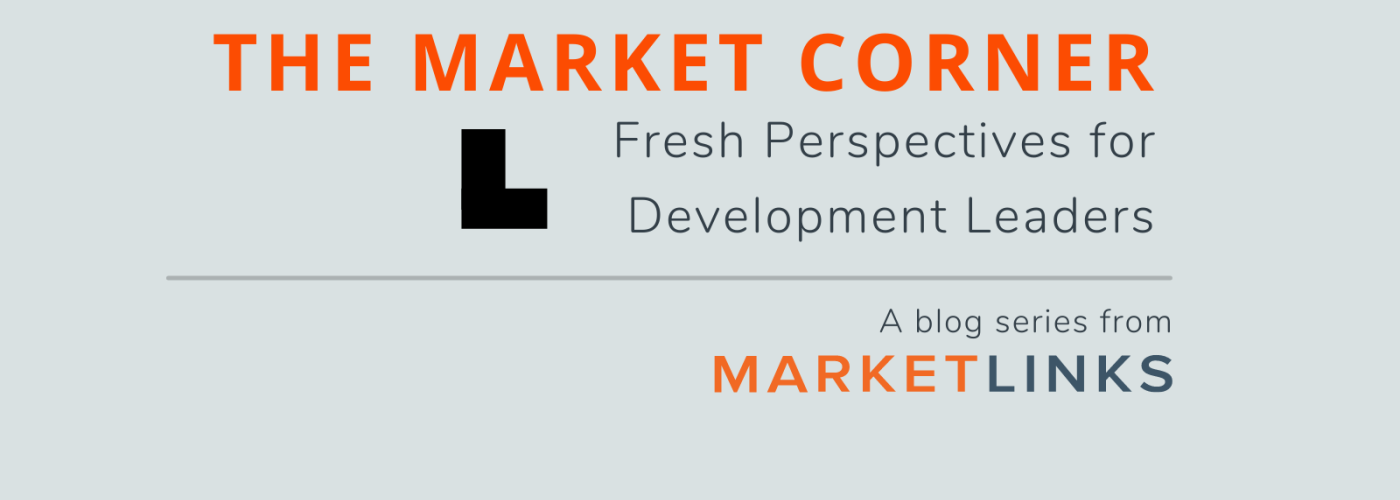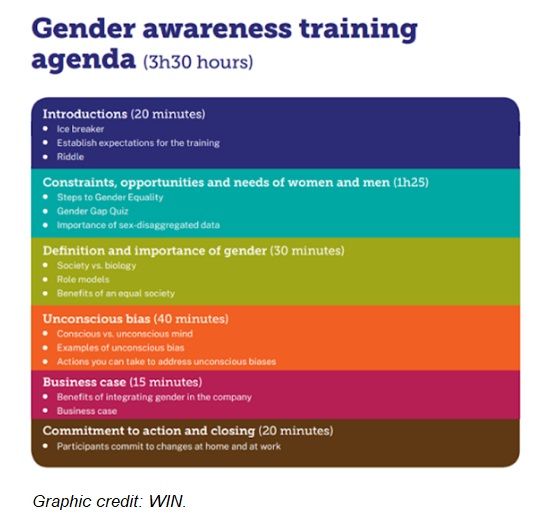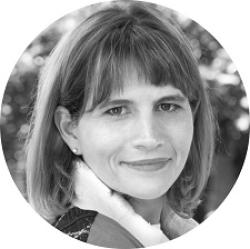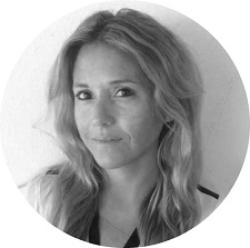The Market Corner: Market Systems Development Learning at MSS2022 and Beyond
Image

This is the second installment in May’s Market Corner series, written by Holly Lard Krueger, which focuses on the market systems development (MSD) tools and resources being shared at the 2022 Market Systems Symposium and ways for practitioners to engage with the MSD community both at and outside of the annual event. Read the first post here.
The annual Market Systems Symposium (MSS) is about more than just sharing tools, though that is an important part of the gathering. It is also an opportunity for MSD professionals to find inspiration and learn about the latest innovations in research and application of MSD.
In this month’s Market Corner, readers get an inside look at the aspirations and expectations of MSS presenter Sarah Bove, Acting Program Director, and participant Renata Makhoul, Acting Deputy Director, both from the Women IN Business (WIN) program. It also includes practical tips for those who cannot attend, but still want to be a part of the spirit of MSS2022 by contributing and discovering MSD-tested tools and resources.
It is hard to find time to read up on the latest in MSD
Sarah looks forward to the MSS because she acknowledges that “day-to-day, [she] is focused on implementation, and it can be hard to take a step back to read up on the latest in MSD.” Both Sarah and Renata look forward to the thematic focus on climate adaptation and conservation. They want to learn more about potential applications for WIN but also for their organization, TechnoServe, which recently announced a partnership with World Wildlife Fund (WWF) and a new focus on regenerative agriculture.
In anticipation of a potential second phase for WIN and a possible focus on employability, Sarah is keen to listen and learn from practitioners implementing MSD employment programs to see what is working and what is not, and what can be adapted to the Mozambican context. Similarly, Renata believes that “it is important to learn from other programs at MSS. There are a lot of synergies between programs, and these events are a way for practitioners to learn from others.”
Sarah believes that talking with and listening to other practitioners who have walked in her shoes, so to speak, will ensure that the content is practical and relatable for her, the WIN program, and even their partners. Similarly, she hopes that the valuable learnings WIN has gathered on economically empowering women micro-entrepreneurs through an MSD program can be shared and used by other MSD programs interested in integrating gender in their programs. WIN works in the micro-entrepreneurship sector, focusing on five sub-sectors: access to financial services; access to equipment; access to goods (distribution); access to management information; and rules and norms (through the media sector).
See how our program stacks up
Due to the nature of some of its interventions — such as for its radionovela Janete, which is now being transformed into a social media multi-platform (e.g., Facebook, WhatsApp with chatbot) to increase female micro-entrepreneurs’ access to business management and financial education best practices, or its intervention with the most popular news program on Mozambican TV, TV Miramar, where WIN broadcasted thought provoking content on gender and entrepreneurship — WIN had to get creative combining traditional quantitative monitoring methods with more innovative mixed-methods approaches such as audience quizzes. Sarah is curious to see how their measurement and evaluation approach stacks up against other projects’, and she is looking forward to joining sessions going deep on that topic.
“I’ll be curious to see more discussions around where the approach can be more impactful,” says Renata who is also interested in the impact measurement topic. She hopes the MSD programs that presented last year on how they’ve been navigating the COVID-19 crisis will have a chance to give an update and share results on whether their program pivots paid off in terms of impact.
Renata is also interested in participating in discussions at MSS around “What is an MSD program?” Since the WIN program is tightly scoped to focus on low-income women entrepreneurs in Mozambique, both Renata and Sarah have found themselves in debates over the course of the program on what exactly defines an MSD program. They both hope that the symposium will provide a forum to debate this topic among others.
A successful symposium, for Sarah, means finding inspiration and examples to draw on for the design of the second phase of the WIN program. For her, it also means generating interest in their program, lessons learned, and tools, which she hopes will be used widely in other programs.
Renata remembers that during the symposium last year, she learned that other programs were using similar tools to those employed by WIN to screen potential private sector partners. This discovery was a reassuring form of validation of the program’s approach to engaging the private sector. 
This year, Renata wants to discover new resources, as well as showcase some of WIN’s resources, such as their guidance document on How to Deliver a Gender Awareness Training and other gender integration tools mentioned in this month’s first blog installment. She is also interested in sharing learnings around their last mile gender-sensitive distribution and alternative financing models, which will also be presented by her colleague Deyzes Pereira at the deep-dive session on Incorporating a Gender Lens to Increase Women’s Access to Financial Services” on May 18th.
Not attending the symposium, but still want to draw inspiration and learnings from other MSD programs?
Sarah plans to share key learnings from the symposium to her team through weekly technical sector meetings, in the team’s quarterly strategic meetings, and during regular debriefs with her colleagues. Not all programs and MSD practitioners, however, are able to participate. Here are some other ideas of ways to stay abreast of the latest in MSD:
- Global MSD platforms such as Marketlinks and BEAM Exchange are excellent MSD knowledge-sharing and learning resources. There are also more local platforms and communities of practices, such as the MozMSD Network which offer relevant trainings in MSD and M&E for MSD.
- Attend content-rich webinars and training. Check Marketlinks and BEAM Exchange for webinar and training listings. A few of the upcoming events are Responding to Shocks Using Market Based Approaches: Insights from Bangladesh RDC (May 24) and Practical Research Techniques for Intervention Management (Sept. 19-27). These events are a great way to learn about programs as well as to network with other participants.
- Check out MSD program websites. WIN, ELAN RDC, and PRISMA for example host tools, reports, and guidance documents that may serve as inspiration for your current or future programs.
Do you have suggestions of other ways MSD practitioners can stay informed about the latest in MSD? Post via your Marketlinks account!
Image

Holly Lard Krueger
Holly Lard Krueger is a managing partner at the Canopy Lab and a market systems development expert with over 15 years of experience providing technical advice in the field of private sector development/engagement with a specific focus on applying digital technology, gender equality and social inclusion (GESI), market systems, and Value for Money (VfM) principles to project and strategy design for agriculture, humanitarian aid, business enabling environment reform, trade, urban development, and women’s economic empowerment programs.
Holly is a proven strategic leader, having managed large market systems projects with diverse teams. She is also skilled as a strategic advisor, coach, and trainer in the practical application of systems approaches to market development, and she is currently an advisor to USAID’s Bureau for Humanitarian Assistance, a World Bank-funded program in West Africa (TFWA), a DFAT-funded program in Indonesia (PRISMA), and a FCDO-funded program in the Democratic Republic of the Congo (Essor). Holly is based in Morocco and has worked in over 15 countries in Africa, Asia, and the Middle East and has implemented projects and conducted evaluations for leading donors, including the Bill & Melinda Gates Foundation, DFAT, IFC, FCDO, USAID, and the World Bank. She has an M.A. from Johns Hopkins School of Advanced International Studies and a B.A. from Vanderbilt University.
Image

Renata Makhoul
Renata has over eight years of experience in the social impact space in developing countries, working with business development and start-up acceleration. She is currently the Acting Deputy Program Director for Women IN Business (WIN), a five-year program to promote women’s economic empowerment in Mozambique funded by SIDA and implemented by TechnoServe. Before that, she worked with an impact investing firm in Ethiopia leading an SME development and investment program in partnership with Global Affairs Canada. She also led the first investment readiness program for start-ups in Ethiopia and was responsible for building the pipeline of companies for a Social Impact Business Accelerator in Brazil.
Prior to that, Renata worked for five years in investment banking for financial institutions such as Bank of America Merrill Lynch, participating in several capital markets transactions across many industries. Renata holds an MSc in International Business and Politics from University of London and a bachelor’s in Business Administration from Fundação Getúlio Vargas.
Image

Sarah Bove
With 15 years’ experience in international development and women’s empowerment, Sarah Bove currently works at TechnoServe Mozambique as Deputy Program Director for Women IN Business (WIN), a program that works with private sector actors to catalyze change for women micro-entrepreneurs. She also serves as gender lead, providing advisory services and training to programs and staff on gender sensitive programming, and previously led Business Women Connect, a women’s entrepreneurship and financial inclusion program implemented by TechnoServe. Before joining TechnoServe, she founded IKURU, an ethical fashion label in Northern Mozambique, and has worked as research consultant, M&E officer, and project coordinator in gender relations, sustainable livelihoods, and migration. She holds a master’s in International Development from Lisbon University Institute and a bachelor’s in Social Studies from McGill University.


